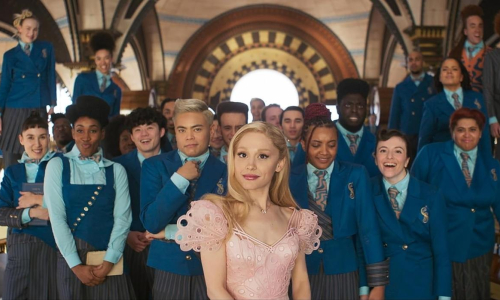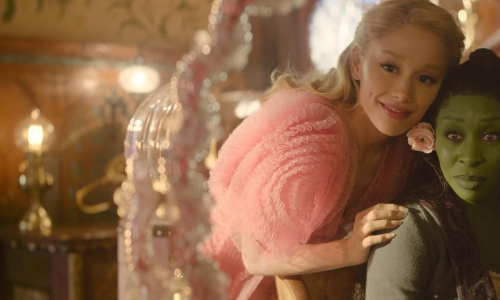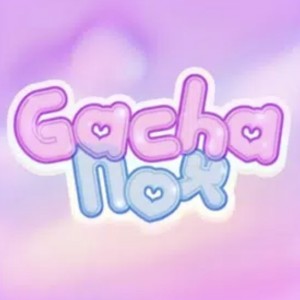- Best Movies
- Wicked

-
Director:
Jon M. Chu
-
Release date:
November 22, 2024
-
Distributed by:
Universal Picture
Features Review
"Wicked," the musical, is an imaginative reinterpretation of Gregory Maguire's novel, "Wicked: The Life and Times of the Wicked Witch of the West." This imaginative tale explores the backstory of the witches from the classic "The Wizard of Oz." The musical debuted on Broadway in 2003, quickly becoming a cultural phenomenon, celebrated for its innovative storytelling, powerful performances, and memorable score by Stephen Schwartz. The Broadway production has captivated audiences for years, establishing itself as a landmark in modern theater.
The Premise: A Unique Perspective
The narrative of Wicked takes place in the land of Oz and offers a fresh perspective on the witches, particularly Elphaba, the misunderstood Wicked Witch of the West. Rather than portraying her solely as a villain, the musical delves into her life, relationships, and the societal prejudices she faces due to her green skin. The story juxtaposes Elphaba's journey with that of her friend Glinda, who evolves from a popular girl into a more thoughtful and aware individual. This exploration of friendship, loyalty, and moral ambiguity resonates with audiences, providing depth to characters previously deemed as one-dimensional.
Character Development and Dynamics
At the heart of Wicked are the complex relationships between characters. Elphaba and Glinda's evolving friendship underscores the themes of acceptance, self-discovery, and sacrifice. Their differing perspectives on life and morality lead to conflict but also moments of genuine connection. Other significant characters, such as the Scarecrow, the Cowardly Lion, and the Wizard himself, add layers to the narrative, challenging the archetypes established in "The Wizard of Oz." These dynamics serve as a conduit for the exploration of broader societal themes.
Musical Mastery: The Score of Wicked
Stephen Schwartz's composing and lyricism play a vital role in Wicked's success. Songs such as "Defying Gravity" and "For Good" are not only musically captivating but also rich in meaning, encapsulating the characters’ struggles and emotions. "Defying Gravity," in particular, represents Elphaba's journey toward empowerment and self-acceptance, becoming an anthem for many. The score blends various musical styles, allowing the show to maintain a contemporary feel while drawing upon traditional musical theater elements.
The Impact on Broadway and Beyond
Since its debut, Wicked has reshaped the landscape of Broadway, drawing in a diverse audience and generating significant ticket sales. It has broken box office records and remains one of the highest-grossing musicals in history. Productions around the globe have embraced Wicked, introducing the narrative and music to international audiences, further cementing its status as a modern classic. The impact of Wicked extends beyond the theater, influencing popular culture with merchandise, parodies, and references in television and film.
Visual Spectacle: Set and Costume Design
The visual elements of Wicked complement its narrative intricately. The original production featured stunning set designs that brought the world of Oz to life, balancing whimsy and darkness. The costumes, particularly Elphaba’s iconic green outfit and Glinda’s shimmering gowns, are central to character representation. These designs not only enhance the storytelling but also reflect the themes of identity and transformation, making them integral to the overall experience.
The Power of Themes: Friendship and Identity
Wicked resonates strongly with themes of friendship and identity. The bond between Elphaba and Glinda illustrates the complexities of personal relationships, while also highlighting how societal expectations can shape and sometimes distort identities. Elphaba’s journey speaks to individualism and the importance of embracing one’s true self, while Glinda's character arc addresses the importance of questioning societal norms and the evolution of understanding and empathy.
Critical Reception and Awards
The critical reception of Wicked has been overwhelmingly positive. Critics have praised the musical for its ambitious storytelling, memorable music, and the powerful performances of its leads. Over the years, Wicked has garnered numerous awards, including Tony Awards for Best Actress in a Musical, Best Musical, and Best Original Score. These accolades reflect the impact of Wicked within the theater community and validate its artistic merit.
International Adaptations: A Global Phenomenon
Wicked’s popularity has prompted numerous international productions, including successful runs in London’s West End, Australia, Japan, and Germany. Each adaptation has embraced local culture while maintaining the essence of the original narrative. The universality of its themes allows Wicked to resonate with diverse audiences, making it a charming representation of friendship and resilience across the globe.
The Journey to the Big Screen: Film Adaptation Insights
Following its success on stage, a film adaptation of Wicked has long been anticipated. Initially announced in 2004, the project has faced years of development changes, director shifts, and casting rumors. Despite the delays, excitement continues to build around the film potential. With the promise of a star-studded cast and a chance to bring the visual splendor of Oz to life on screen, fans eagerly await new developments while hoping to capture the magic of the stage production.
Fan Culture and Community Engagement
The phenomenon of Wicked has spurred a passionate fan base that contributes to its ongoing legacy. Fans engage in discussions, create fan art, and attend conventions to celebrate their love for the musical. Social media platforms serve as spaces for these communities to connect, share experiences, and promote their interpretations of the work. Active engagement cultivates a feeling of belonging and highlights the emotional resonance of the narrative.
Challenges and Controversies
Like any cultural phenomenon, Wicked has encountered its own set of challenges and controversies. Some critiques address the portrayal of themes such as good versus evil, examining the implications of the narrative choices made. Others focus on the representation of race and identity within the context of the characters and their journeys. Engaging in these discussions enhances comprehension of the musical's themes and prompts the audience to critically interact with the narrative.
Legacy and Future of Wicked
The legacy of Wicked continues to thrive through ongoing productions, merchandise, and cultural references. As it marks major milestones, the musical solidifies its status as one of the most impactful pieces in the American musical theater tradition. Future developments, including the long-awaited film adaptation and potential new productions, promise to further engrain Wicked within the landscape of contemporary theater.
Lessons Embedded in the Narrative
Wicked offers many lessons pertinent to society today. It encourages audiences to look beyond appearances, challenging preconceived notions of right and wrong. The story advocates empathy, understanding, and the recognition that one person's villain can be another's hero. This intricate moral dilemma encourages introspection on one's own prejudices, pushing people to contemplate the wider consequences of their behaviors and views.
The Soundtrack: A Journey of Emotions
The soundtrack of Wicked has gained iconic status, with songs that evoke powerful emotions and resonate with listeners. The combination of soaring melodies and impactful lyrics offers audiences an emotional journey throughout the narrative. Each track enhances the storytelling, encapsulating Elphaba's trials, Glinda's growth, and the societal issues they face, creating a listening experience that lingers long after the curtains close.
Merchandising and Cultural Influence
The commercial success of Wicked has given rise to a wide range of merchandise that reflects its cultural influence. From T-shirts and posters to themed events and experiences, the reach of Wicked transcends the theater, embedding itself in collective memory. This commercial aspect further solidifies Wicked's significance in contemporary culture, showcasing its role as a symbol of empowerment and individuality.
Final Thoughts on the Enchantment of Wicked
Wicked remains not just a musical but a rich and transformative experience that invites audiences into its world with open arms. Its ability to address profound themes while entertaining has ensured its appeal across generations. Elphaba and Glinda's adventure underscores the significance of friendship, empathy, and embracing oneself, making a lasting impression on everyone who visits Oz.
Pros
- Wicked offers a unique perspective on familiar characters and themes, challenging traditional narratives
- The musical features a powerful score by Stephen Schwartz, with memorable songs that resonate with audiences
- The story explores complex themes of friendship, identity, and acceptance, making it relatable to diverse audiences
- Wicked's stunning visual elements, including set and costume design, create an immersive theatrical experience
- The production has achieved immense popularity and commercial success, breaking box office records
- International adaptations have allowed Wicked to reach a global audience, contributing to its cultural impact
Cons
- Some critics argue that the portrayal of themes such as good versus evil is overly simplistic
- The narrative may not fully address the implications of race and identity in the context of its characters
- The long-awaited film adaptation has faced numerous delays and development challenges, leading to uncertainty


































